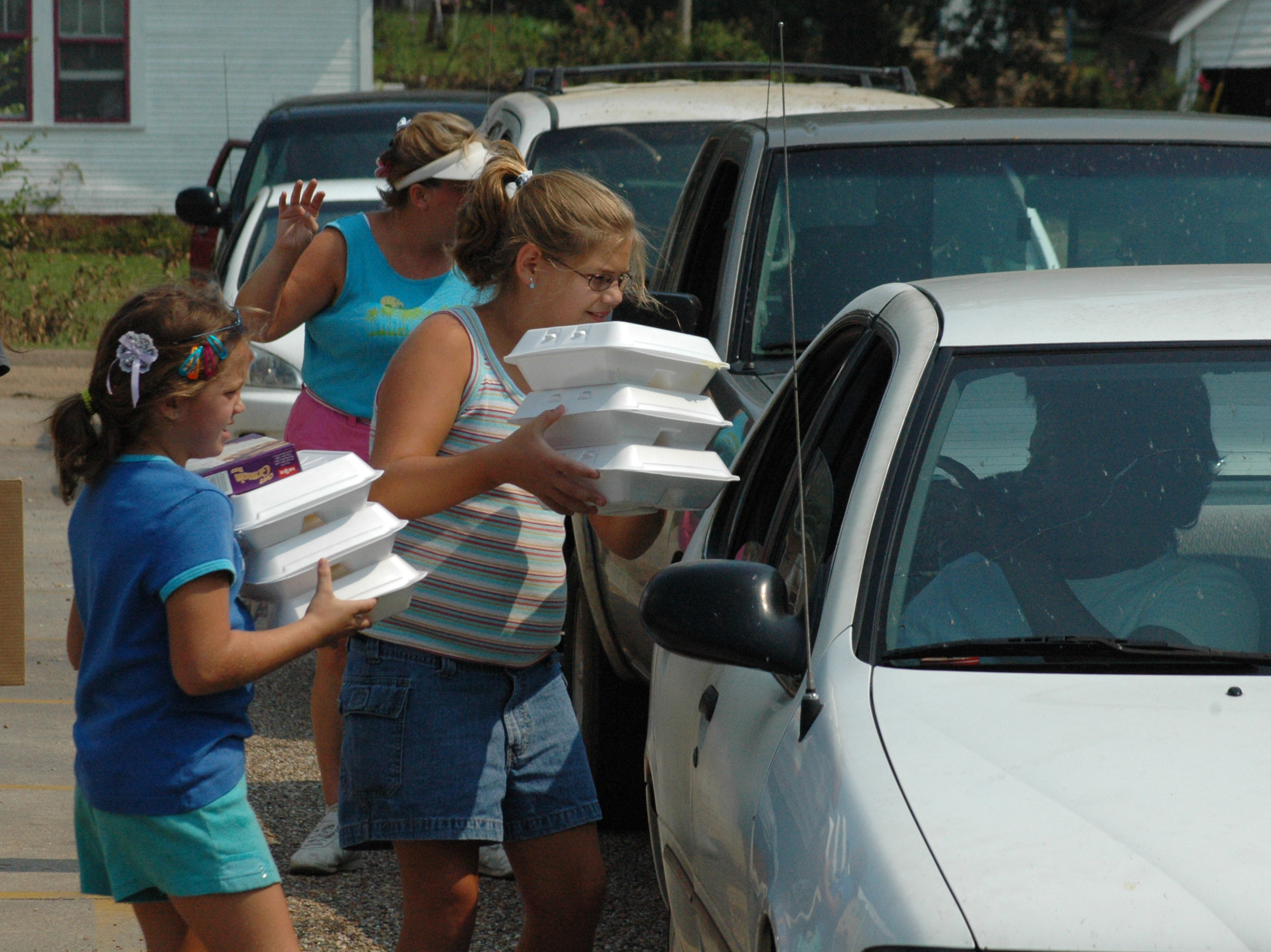
TYLERTOWN, Miss. (BP)–Rose limped along, drawing security from her cane. Suffering from serious arthritis along with a long list of other ailments — and being recently widowed — she might have reason to be disgruntled, especially amid the aftermath of one of the most vicious hurricanes ever to make landfall in America.
Instead, she was excited.
She was on a disaster relief feeding unit team from her Southern Baptist church in Michigan, preparing several thousand meals a day for a community left without power, without phones and without the means to care for itself.
They needed her and she felt their need. Her story is an illustration of the passion possessed by Southern Baptist Disaster Relief volunteers.
I couldn’t help but notice, traveling from Atlanta into Mississippi after Hurricane Katrina, the constant caravan of water-laden pickup trucks and trailers, multiple loads of generators and an endless parade of power company trucks descending from the north.
I also saw cars with Louisiana tags packed to the hilt with personal belongings, still looking for a place to rest. I tried to place myself in their situation. What would I do if I were given a few hours to pack all that I think I’ll need to get out of the storm’s path, never thinking that I won’t be able to return and resume life as normal. What a sinking feeling it would be to realize after a day or so that all I had left of a lifetime of memories and accumulations were in the back seat of my Honda Accord or Ford Taurus. Oh yeah, my job is gone too and what I have in my accounts is all I have to live on. How long could I last? Many have been faced with that reality.
I had never heard of Tylertown, Miss., until Hurricane Katrina. It is a quiet town of just 3,000 people about eight miles north of Louisiana and 50 miles north of New Orleans. It boasts of the only traffic light in the county and is the focal point of social activity in this part of Mississippi. Katrina stormed ashore southeast of here and marched north a few miles east but her skirt whipped at the trees and blew them southward with 75–100 mph gusts. The local history books from now on will be etched with a “before Katrina” or “after Katrina” designation.
I came to assist with Southern Baptist Disaster Relief teams that blew into this community from around the country with as much purpose and determination to help as Katrina blew in to destroy. Thousands of downed trees had disabled the power grid and blocked streets, leaving the town in motionless darkness.
Some of these trees were over 100 years old and had been around longer than the town. They split houses in half and pulled giant root balls from the ground, leaving holes where manicured lawns with yard furniture used to be. Roof shingles dotted the streets and grassy areas. An occasional smell of a dead animal blended with the gas and oil mixture from the constant buzzing chainsaws. This may be mild damage according to Katrina standards but it was catastrophic when compared to an ordinary storm.
The people of Tylertown stood with their mouth dropped at the destruction and then stood in awe again as they watched Southern Baptists care for them. The feeding unit from Michigan prepared food for the community, while chainsaw teams from Alabama, Indiana and Tennessee cut a path through the fallen timber -– and into the hearts of the residents. Shower units from Georgia and Texas were on hand while area church members served food to their neighbors. Broken hearts ministered to a broken community. Although they were strangers to each other just a few hours before, they organized together into a team to nurse the hurting town back to health.
Joe Stinson stared at the house where he was born in 1949. The roof now sat on the stairs leading to what used to be the porch. The huge oak tree that shaded the house down through the years now was cradled by the walls of the living room. The giant branches reached heavenward as if requesting help from above.
Henry Wilson’s tired body rejoiced in the relief offered by the team of younger backs wielding chain saws and cleanup equipment. His aging bones ached from the effort he had already made in clearing his property.
It was a rare occasion when I ventured out that I didn’t get a “thank you for being here” from a local.
But it’s not over. Like different wounds we encounter in life, so are the wounds of Hurricane Katrina’s victims. Some have just superficial wounds that will heal quickly with the restoration of utilities. Some are a little more serious and will take more time to correct. They may have a yard to clean up or a building to fix. Then there are those with compound fractures. Their house may have been split in two or flooded by Katrina’s rain.
And, for many, there are emotional scars from living through the storm. There’s the stress of rubbing aching muscles of a hurting body — and nurturing a pained heart.
Let’s continue to help these good people. Let’s show them that not only can we lend a shoulder to the work of clean up and rebuild but we also can help absorb the tears. Although Katrina’s mission was accomplished in a matter of hours, our mission will last for years.
–30—-
Bruce Mundell is a member of Shadow Brook Baptist Church in S

















